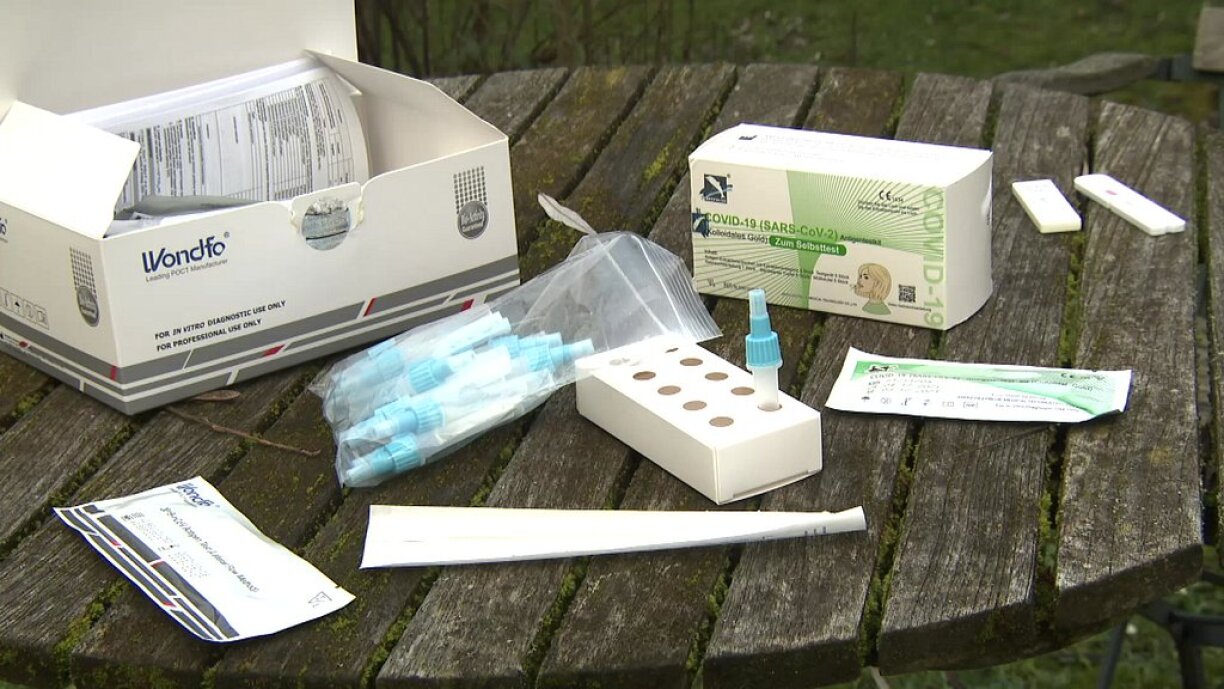
A recent study of the German Paul Ehrlich Institute (PEI) tries to answer that question.
Anhui Deepblue and Guangzhou Wondfo, two brands of rapid tests available in Luxembourg, both meet the sensitivity criteria set out by the Paul Ehrlich Institute. They detect a high virus load in at least 3 out of 4 cases, with some differences: Deepblue detects people who are highly infectious in 100% of cases, Wondfo only in 88%. With a medium virus load, Deepblue detects 39%, Wondfo none. It seems clear that some contagious cases will be missed.
“I would say that in the current situation where numbers are rising rapidly, this is less important. What I mean when I say this is that Omicron tends to cause a less virulent disease,” says professor Claude P. Müller, virologist at the Luxembourg Institute of Health.
The Paul Ehrlich institute has also issued a negative list with over 40 tests they do not recommend. None of these are found on the lists of self-tests recommended by the Health directorate. This list, however, is from June 2021, and many of the brands included are not on the PEI’s positive list, either.
Further reading: New measures for 2G+ in Luxembourg
Rapid tests and Omicron
Professor Müller is not too worried about the sensitivity of the tests in detecting Omicron, though he says an extensive study is still needed. The main mutations with Omicron are found on the spike protein, he says, while the rapid tests use the nucleo protein for detection. This has only seen two mutations with Omicron, so there should not be much difference in the test sensitivity.
If you do have Covid 19 symptoms but the rapid test is negative, you should still isolate and do another test the next day, professor Müller recommends. Pharmacies should check the list of the PEI to ensure the tests they are offering are on it, he says.
For him, rapid tests are still an important tool to keep the pandemic in check.
Further free rapid tests to be distributed?
The government has recently ordered 13 million rapid tests from a variety of suppliers. They meet the sensitivity requirements, Paulette Lenert said in an interview with RTL. But there are currently no plans to distribute further free tests to households. With the new Covid law voted Tuesday, isolation can be shortened after a negative self-test on day 5 and 6.
A recent British study has found that shortening the isolation from 10 days to seven with 2 rapid test had no negative impact on the evolution of the pandemic.